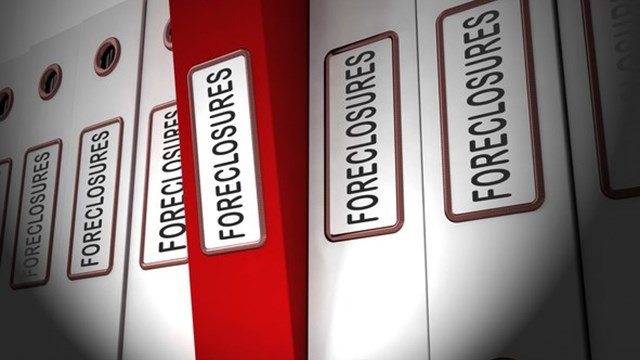
In the tough economic environment that has hit our nation over the past few years, many condo owners have faced job loss, pay cuts or just financial uncertainty. Unfortunately, the signs of the times sometimes leads to an owner not paying their common charges.
“This is the weirdest, craziest market I’ve ever seen and I’ve been working in real estate in South Florida since 1978,” says Margaret Antoon, president of ACM Real Estate Inc. and Property Management in Lighthouse Point. “Generally speaking, everyone is getting hit hard by non-payment right now. The high-end, luxury market is because in most cases they are overpaying, and the lower end market because they can’t pay. Here in Florida it’s getting worse and I don’t think people realize what’s going to happen in the next year. I believe we are going to see a lot more foreclosures in condominiums because people can’t make the payments in the associations. The unemployment rate is high in Florida and the job creation is like zero in South Florida.”
“We are seeing people struggle today more than they have in a long time and we’re not seeing a huge improvement in the economy,” agrees Melissa L. Nash, president of ARI, a full- service collection agency based in West Palm Beach that specializes in homeowner associations. “What we have now is a better attitude toward debt and an obligation to paying off that debt. Before we had people who were like, ‘We are not paying our mortgage so deal with it.' I do see an attitude change toward homeowner association dues. In many cases people want to pay them, but are not in the financial position to do so.”
When unpaid, overdue debt is not collected, it can wreak havoc on a condominium association. In smaller communities, it can quickly cause the association to have trouble meeting operating expenses, while even larger associations will eventually feel the effects of the shortfall if multiple units fall into arrears. “Everyone wants to live in a financially, vibrant community,” says Nash “At the end of the day that is everyone’s goal. Everyone wants to be on track.”
Associations should distribute a written procedure to everyone in the community so that residents know exactly the way things are done—and more importantly, that things are done consistently for all unit owners. It’s vital for boards and managers to take a proactive role in collecting common charge arrearages to ensure that their condominium association remains financially stable.
Legally, it’s common property but ethically, it’s private information, so revealing to others that someone is late with their payments is a judgment call on the part of the association.
The First Steps
When someone is late, the first step is to send them a formal letter, perhaps with a small fine. First and foremost, an association via its board of directors should have a written collections policy that details the steps to be taken in the event an owner becomes delinquent. Generally, the steps include the action to be taken and the timing of the action, says Jeffrey Ulm, president/CEO of Association Services of Florida in Miramar.
“Once a grace period for payment has been reached a late notice is sent, usually from a lawyer,” says Ulm. “The grace period is normally found in the association’s documents. Depending on the community, the grace period could be 5 to 30 days or even longer.”
If the late notice goes unanswered and they don’t pay again, that’s when the law often gets involved and the fear that everything is about to crash down on them comes in.
If the letter from the lawyer doesn’t do the trick, at this point, legal fees start to be significant. Expenses include a title search, preparation of summons, a court filing fee, attorney fees and an appraisal. That can easily be $1,500 to $3,000. The end result if the bank does not intercede on behalf of the homeowner will be a foreclosure auction.
“Associations have to be very aggressive with delinquent owners in this market,” says Antoon. “The downfall is that if an association does proceed with a foreclosure they may be liable for the mortgage. Some people don’t pursue foreclosure proceedings at all because it’s too expensive. It depends on the size and number of units. You have to look at the numbers.”
Liens & Foreclosures
An association’s best method for striking fear into a delinquent payer to collect common charge arrears is filing a lien against the unit and foreclosing on it. After all, once filed, the lien will protect the condo by blocking the unit owner from selling or refinancing their unit without first paying off his or her arrears to the condo association.
According to Ulm, when a grace period is over, an Intent to Lien (ITL) letter is sent. Most associations have the right to place a lien on a unit for unpaid assessments. The State of Florida requires that an ITL be sent letting the owner know of the delinquency and that the HOA intends to place a lien on the unit. The amount of the notice required is either 30 days for a condominium association or 45 days for a homeowners association.
“If the owner is still delinquent after the lien period then the association may foreclose on the unit and take the title,” says Ulm. “The state requires that the lien be in place at least 30 days for condominiums and 45 days for homeowner associations before a board can proceed with foreclosure action. The decision to foreclose should be considered on a case-by-case basis and should be based on sound business judgment. It’s always a good idea for the association’s attorney to be consulted on a foreclosure action.”
“In Florida, associations have lien rights,” says Nash. “Whether you’re a homeowners association or a condo association, the collection steps are slightly different but they are very similar. An association has a right to file a claim of lien against a property and the value of the property—and the association can actually foreclose against the property. It’s a very expensive legal process because now you’re using the legal system for collection.”
Reaction from real estate professionals was mixed on whether or not associations should work out payment arrangements with delinquent unit owners prior to foreclosure.
“The association’s goal should be to collect the assessment in as timely a manner as possible and to try to avoid legal action,” says Ulm. “If the owner can agree to, and abide by, a reasonable payment plan then it is in both party’s best interest to arrange a payment plan. Generally, it’s up to the owner to offer a payment plan and for the board to review it and decide if it’s acceptable.”
“An association shouldn’t work out a payment arrangement with a delinquent owner,” adds Nash. “It should be turned over to a third party in order for an arrangement to be done. Otherwise everybody can walk in and say ‘I want a payment arrangement.’”
Cause & Effect
Even the best run condos will most likely face this issue eventually and it’s important that there is a plan in place to make up for the missing money.
Other effects of non-payers are that the association may need to stop non-essential services like landscaping, painting or even shut down a pool if the arrears situation gets tight. More extreme boards will do assessments or raise common charges to make up for delinquencies.
Another option is for members of the board or other residents stepping up and prepaying future charges. Understanding that the money will eventually come in via the foreclosure, this is one vehicle to keep the accounting solid. However, it’s not always easy to get people to fork over more money than they need. Keep in mind that a condo association expecting a certain level of inflow to run its budget and the money does not come in, things can get problematic in a hurry. That’s why an aggressive collection policy is important to keep disasters from happening.
Keith Loria is a freelance writer and a frequent contributor to The South Florida Cooperator.






Comments
Leave a Comment